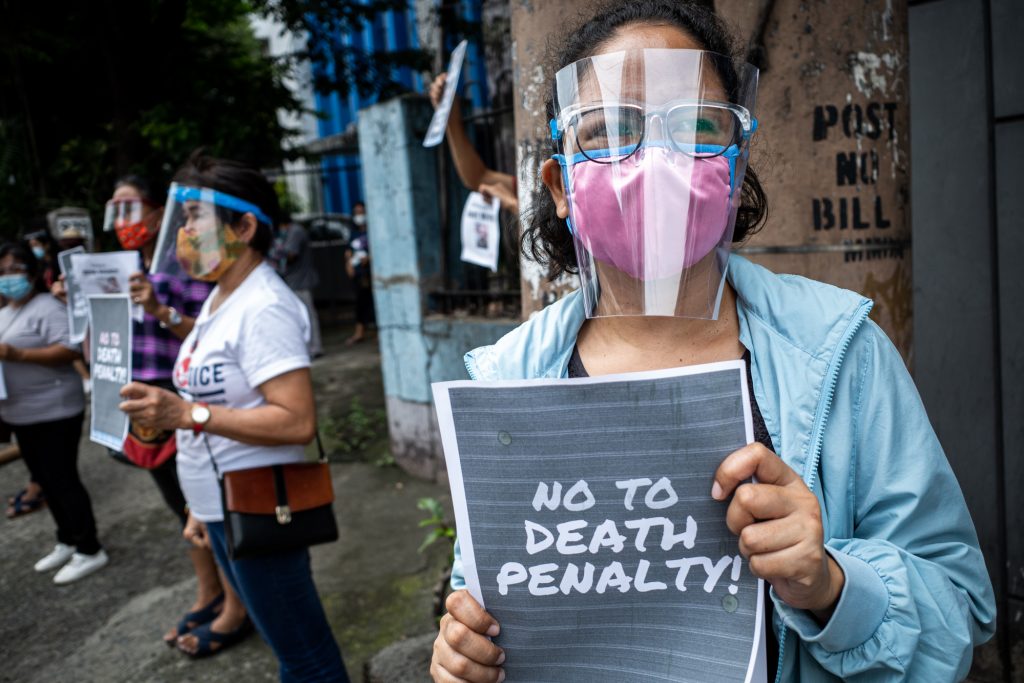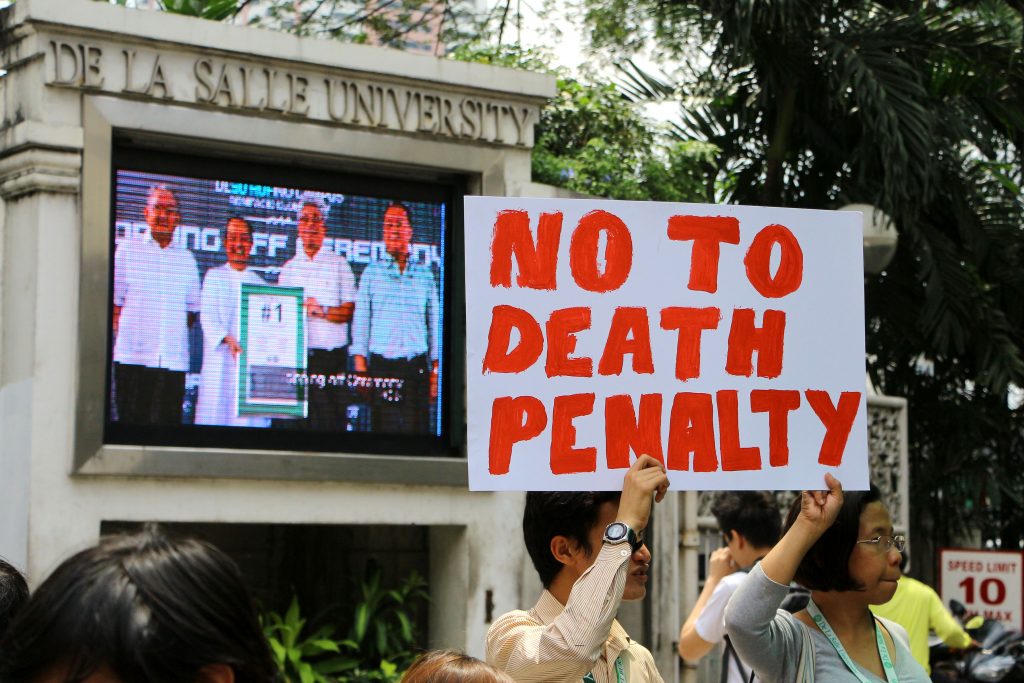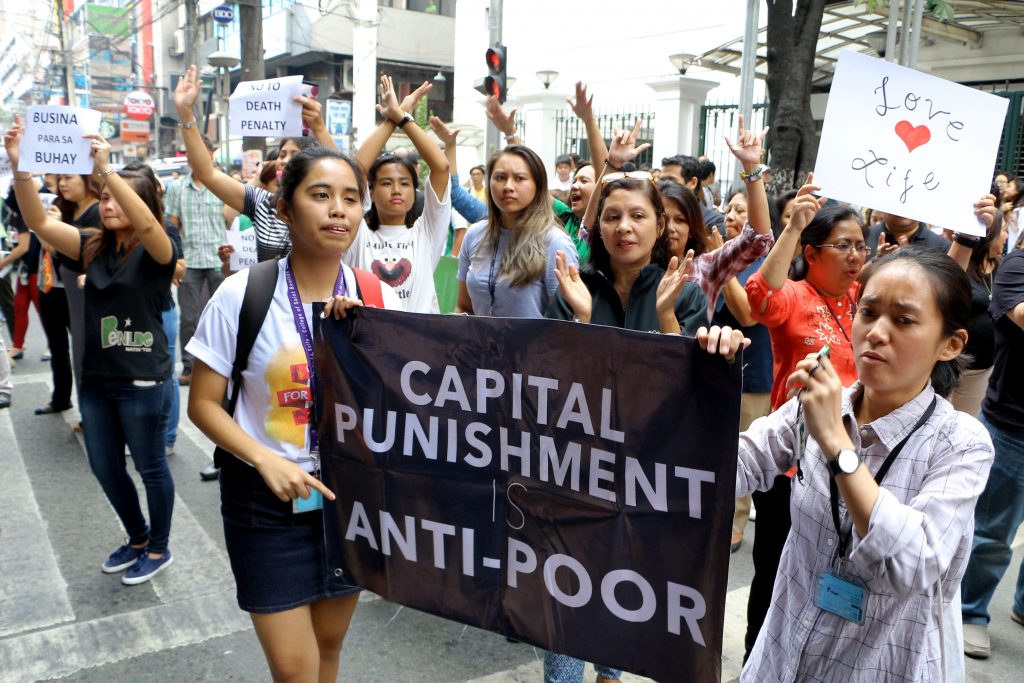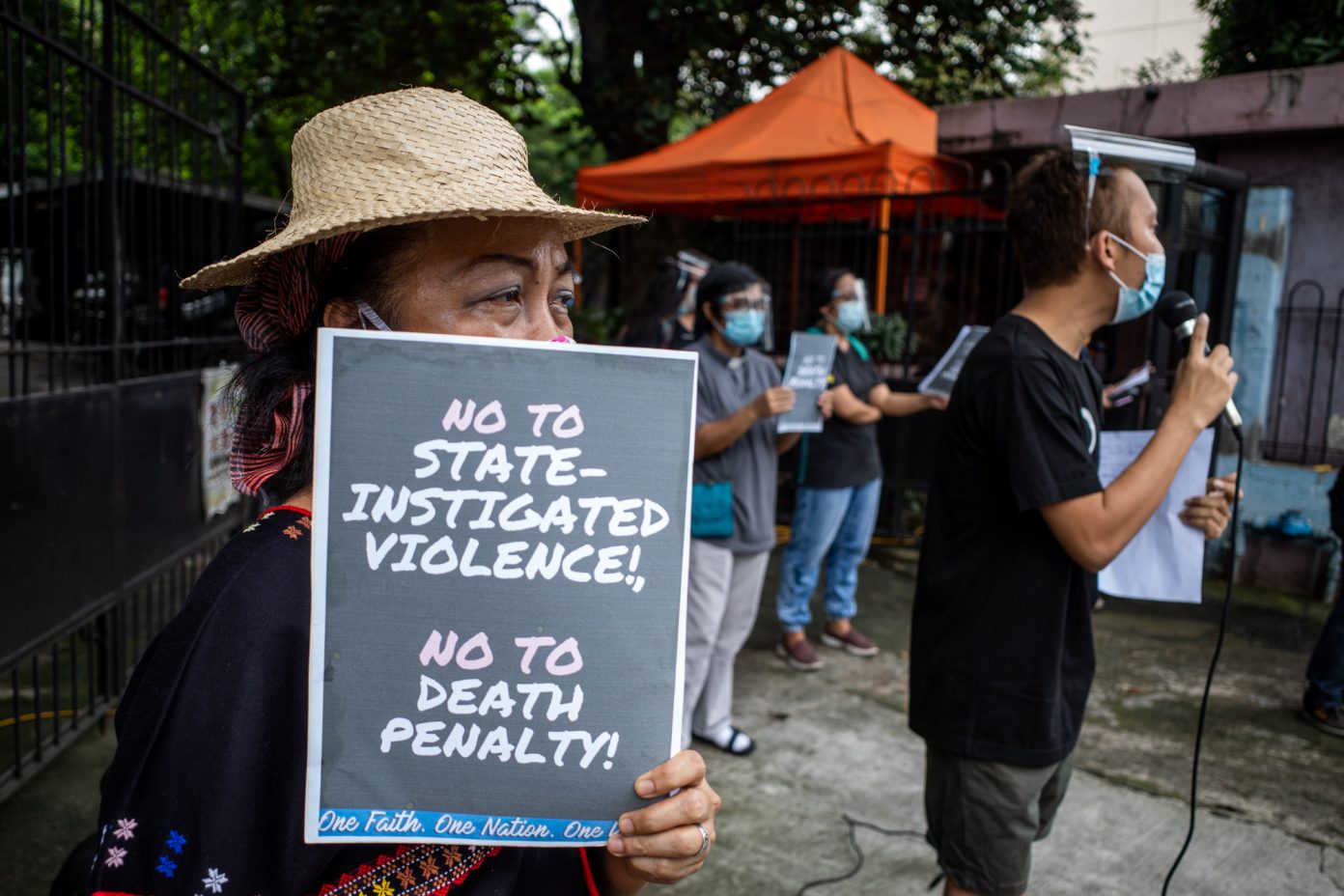“The Church sees as a sign of hope a growing public opposition to the death penalty, even when such a penalty is seen as a kind of ‘legitimate defense’ on the part of society. Modern society in fact has the means of effectively suppressing crime by rendering criminals harmless without definitively denying them the chance to reform.” (Evangelium Vitae. 27)
The welcome news of the 8th World Congress against Death Penalty to be held in Berlin on November 15-18, 2022, anticipates an attendance of more than a thousand participants from 90 countries. The main issues related to the death penalty in the world will be debated over by political figures, activists, and committed citizens.
Launched by the European Christian Political Movement (ECPM) in 2001, this global abolitionist campaign held every three years in different strategic cities is a highlight of abolitionist’s events in the calendar of the global abolitionist campaign.
A key global meeting, the ECPM announced that the “World Congresses aim to take stock of progress towards universal abolition and the difficulties encountered along the way.” Considered as a “unique opportunity” to assemble actors working for abolition at the local, regional and international levels, activists, lawyers representing death row prisoners, political leaders, diplomats, parliamentarians, former death row prisoners and victims’ families are in a position to contribute effectively to the elimination of the death penalty.
“For over twenty years, World Congresses have been an opportunity for abolitionists to join forces to prepare for tomorrow’s struggle,” according to ECPM.
“To ensure that new audiences take ownership of the death penalty issue,” the ECPM has introduced innovative strategies by holding past events in different cities in the world, addressing new targets.
In 2013, the Congress was held in Madrid highlighting the role of parliamentarians. In 2016, Oslo was the venue of the Congress targeting national human rights institutions (NHRI) where the human rights institutions were involved for the first time. In Brussels in 2019, a new debate with the private sector and business was initiated.
“This year, in Berlin, ECPM is giving a voice to the younger generation, the pillar of the universal abolition of the future. “
Coming together every three years, in different cities to advance the cause of universal abolition — in Montreal, Canada in 2004; in Paris, France in 2007; in 2010 in Geneva, Switzerland; in Madrid, Spain in 2013; in Oslo, Norway in 2016; in Brussels, Belgium in 2019; and this year, 2022 in Berlin, Germany — the World Congress has become the “essential meeting place for abolitionists” from all over the world.

The growing aversion of public opinion towards the death penalty and the various provisions aimed at abolishing it or suspending its application constitute visible manifestations of a heightened moral awareness. (Compendium of the Social Doctrine of the Church, 405).
The growing number of countries adopting provisions to abolish the death penalty or suspend its supplication is also proof of the fact that cases in which it is absolutely necessary to execute the offender “are very rare, if not practically non-existent. (Evangelium Vitae, 56)
The value of the triennial gathering expressed by isolated members of civil society especially in retentionist countries, is the “impetus generated by the Congresses drawing on the advice and good practices collected within the abolitionist community, which is structured as an interactive network.” This sense of being a part of a global movement undoubtedly contributes to the confidence of those who live in retentionist countries but continue to pursue their efforts.
Regional Congresses were held in preparation for the World Congress in Rabat, Morocco, in 2012; in Kuala Lumpur, Malaysia in 2015; and in 2018 in Abidjan, Côte d’Ivoire. Due to the pandemic, the scheduled regional congress in 2021 could not be held, however it will take place at a later date.
Ramla Liatouji, coordinator of the World Congress said in an interview, “Little did we know about the difficulties we would have to face in the context of a global health crisis, regarding the organization of the next World Congress hosted by Germany. This situation obviously requires much more vigilance and effort to bring together and galvanize the abolitionist community.
“In my opinion, the challenge in Berlin will be to strengthen the cohesion of the international abolitionist community and to make Berlin 2022 our first major post-COVID event. It is essential to revive this momentum to further the fight for abolition in a world that is punctually disconcerted by a pandemic that further weakens the issue of fundamental rights such as the death penalty.”

With the opening ceremony to be held at the Pierre Boulez Hall, and the closing ceremony in the Berlin City Hall and an unprecedented treatment (in the past Congresses) of “the youth” as theme this 8th World Congress Against the Death Penalty promises to be very good and productive.
In the Philippines, however, where the death penalty was abolished on June 4, 2006, by the passing of Republic Act 9346, An Act Prohibiting the Imposition of the Death Penalty, there are moves to restore the death penalty.
As of November 2021, there are at least six bills in the Senate that propose to reimpose the death penalty in the Philippines. In the House of Representatives, at least 12 bills were filed in 2020 seeking to revive the death penalty. All these initiatives are in keeping with past president Rodrigo Duterte’s pronouncements.
Duterte in his Fifth State of the Nation Address in June 27, 2020, called on Congress for the swift passage of a law reimposing death penalty through lethal injection for offenses covered under the Comprehensive Dangerous Drugs Act. And with the newly elected president openly announcing that he will continue the programs and directions of the previous president, there is a big likelihood that he will encourage the passing of the same bills.
Some candidates in the senatorial race in the Philippines’ May 2022 elections who have won have openly declared that they were in favor of the reimposition of the death penalty.
Karapatan, a coalition of rights organizations in the Philippines declares that “Although previous attempts to pass bills in Congress face numerous challenges and ultimately failed, these calls to reintroduce the death penalty are disconcerting every time they are made.
“The death penalty has been presented as a quick-fix solution to the rampant drug trade in the Philippines. However, this issue is a symptom of deeper problems that are rooted in poverty and socio-economic inequalities. It can never be solved through the death penalty.”

Sixty percent of the world’s population still live in countries where death penalty is still retained, among these countries are China, India, the United States, Singapore, Indonesia, Pakistan, Bangladesh, Nigeria, Egypt, Saudi Arabia, Iran, Japan and Taiwan.
Amnesty International recorded at least 1,477 death sentences in 454 countries in 2020, and more than 26,604 people still on global death rows at the end of 2019. China is said to top the list with the most confirmed executions in 2020. However, figures are not accurate since China considers data on state executions as top secret.
Bloodless methods of deterrence and punishment are preferred as they better correspond to the concrete conditions of the common good and are more in conformity to the dignity of the human person. (CCC 2237)
The 8th World Congress Against the Death Penalty is a source of hope against the backdrop of an impending return of the death penalty to the Philippines, as the Congress promises “to breathe new life into the community and engage in new strategic approaches in line with our times and our means of interaction.” The hope is that it spreads to other retentionist regions as well.
Edita Burgos is a doctor of education and a member of the Secular Order of Discalced Carmelites. Gunmen — believed to be soldiers — abducted her son Jonas Burgos in Manila in April 2007. He is still missing.







